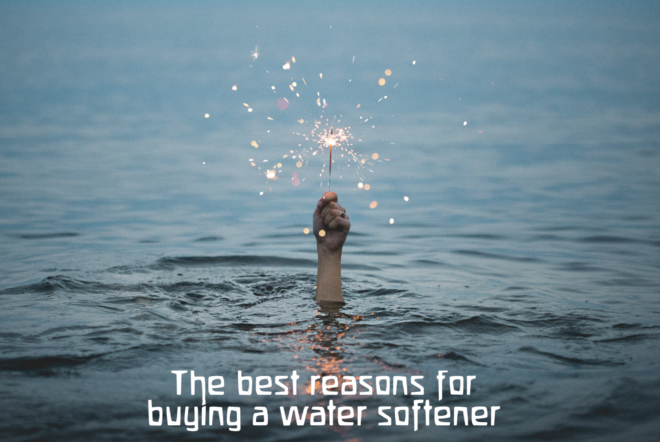Water quality is very important to live a healthy life and hard water can cause problems that will be hard on your wallet too. When soluble minerals in groundwater react with heat in your property’s plumbing pipes, scale and buildup form, causing damage to your pipelines, appliances, and faucets.
Rainwater is clean and devoid of impurities or soft water when it comes as rain. It gathers minerals such as calcium and magnesium as it runs through the land. Hard water is defined as water that has accumulated a considerable number of minerals.
Hard water corrodes pipes and causes a slow build-up of scale and other deposits in water-supplied equipment. The efficiency and longevity of the appliances are reduced as a result of these accumulations.
A water softener converts hard water to soft water by eliminating the magnesium and calcium in your water system through an ion exchange process.
You can prevent your property from dangerous accumulation while also removing gunk (which is only present in hard water) and improving your family’s skin health and hair by softening your water.
Do I Need A Water Softener?
Taking a sample of water to a qualified water-testing facility is the best approach to find out if your house has hard water. You will get a comprehensive report for around $100, and it won’t simply be about minerals. Many additional chemicals, including oxides, chlorine, salt, and hazardous microorganisms, will be identified in the comprehensive examination.
However, you may check for some of the most typical hard water indications in your home by yourself:
- Look for mineral accumulation near taps and around valves or in shower holes.
- Hard water can make soap scum to accumulate in sinks and shower walls.
- Washing clothes with hard water can make your cloth’s fabric stiff and rough.
- Your water is hard if you feel skin irritation or dull hair after the shower.
- Due to buildup, hard water reduces the water pressure in pipes.
- Check to see whether your appliances are breaking down faster than they should.
- When your dishes dry, they will have watermarks and residue on them.
Hard water is a condition that is both prevalent and possibly dangerous. Installing a water softener is an efficient and relatively inexpensive option to deal with it.
Benefits Of Soft Water
Here are the top 5 arguments for installing a water softener in your house. Just a brief reminder on set-up: you can install a water softener if you can install a washing machine!
-
Heating System
Water softeners lower the quantity of fuel needed to heat the water by eliminating present grime and keeping it from re-forming in your heating system.
-
Domestic Appliances
Water softeners will eliminate all accumulated scale from all pipelines and devices, as well as from areas such as faucets and bathtubs. There is no need to change them as frequently as you would if you had hard water problems. It will also prevent the recurrence of scale accumulation.
-
Doing the laundry
When washed with soft water instead of hard water, clothes become more soft and retain colour. You whites will stay white and last longer. It is a proven truth that you will use less detergent.
-
Less Cleaning Needed
There will be no more wiping corrosive salts with a lemon, no soap buildup markings in basins or marks on faucets, and you will be able to use far less cleaning chemicals. This helps you save time, cash, and labour while also helping to make your house more eco-friendly.
-
Protect The Environment
Everyone these days is attempting to do their part to minimize environmental impact and make our world greener and healthier. Installing a water softener in your home may help the environment by reducing the quantity of greenhouse gas emissions.
What is the mechanism behind this? It’s straightforward.
Because soft water warms more quickly than hard water, it consumes less energy and emits fewer greenhouse gases. You will also save money on your energy costs, making it a genuine win-win situation.
Conclusion
The water we use in our toilets, bathtubs, and drainage systems originates from deep inside the earth, via wells or the pipe networks of our town or city. This water will undoubtedly pass through rocks, calcium deposits, and chemical spaces as it flows through the earth. This is referred to as hard water.
Many difficulties may be avoided by installing a water softener. If you want to soften your water, do some research and see a professional about how the system will affect your home’s water system.
For households who are suffering from the consequences of hard water, a water softener may be a lifesaver. But at the end of the day, installing a water softener as well as keeping a dedicated hard water line in your home may frequently provide you with the best possible outcome.

